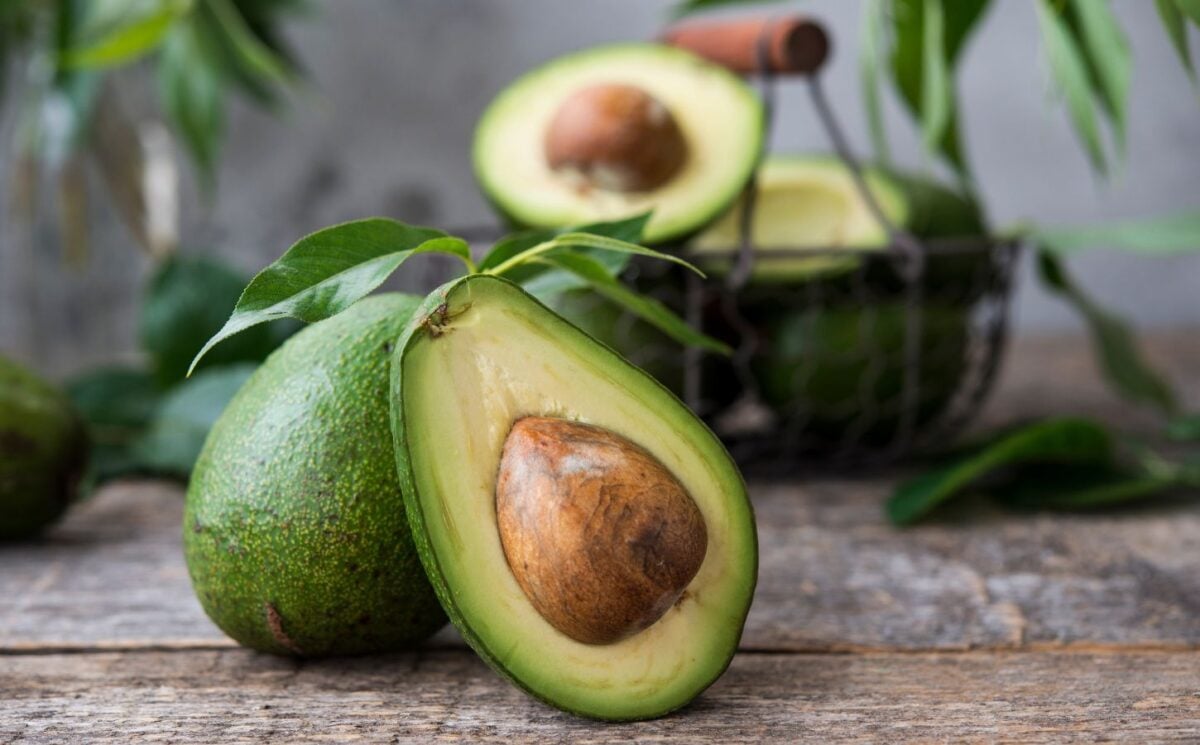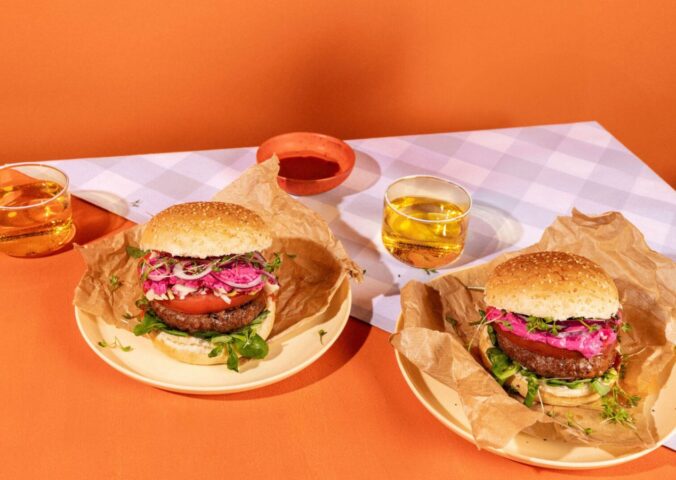The question of whether avocados are vegan pops up time and time again in the media, most notably from Piers Morgan. Vegans are often accused of hypocrisy for harming bees by eating avocados. It’s true that commercially kept bees are used to pollinate avocado trees, and commercial beekeeping is considered harmful to bees. So, are avocados vegan?
This notion first gained traction after an episode of QI in 2018. Host Sandi Toksvig said that “strict vegans” could not eat foods including avocados, almonds, and melons for the same reason they can’t eat honey – because it exploits bees. The bees are shipped in to pollinate specific crops in what is known as “migratory beekeeping.” Toksvig called this “an unnatural use of animals.”
British TV host Piers Morgan regularly accuses vegans of avocado-based dishonesty because cultivating the fruit, he says, kills billions of bees every year. Most recently he levelled the allegation at Juliet Gellatley, director of vegan charity Viva!, who was on Morgan’s show to discuss Viva!’s recently banned yogurt advert. When she asked Morgan if he eats avocados, he said he did, but that it wasn’t the bees he cared about – it was the hypocrisy of vegans.
So there are two claims being made about vegans and avocados. One, per Toksvig, is that avocados and other foods aren’t vegan because they involve an “unnatural” use of bees. The other, per Morgan, is that many bees die in the process of pollinating avocado trees.
Here, we untangle these claims to see what’s true and what isn’t, and question whether vegans really are “hypocrites” for eating avocados.
Avocados and migratory beekeeping
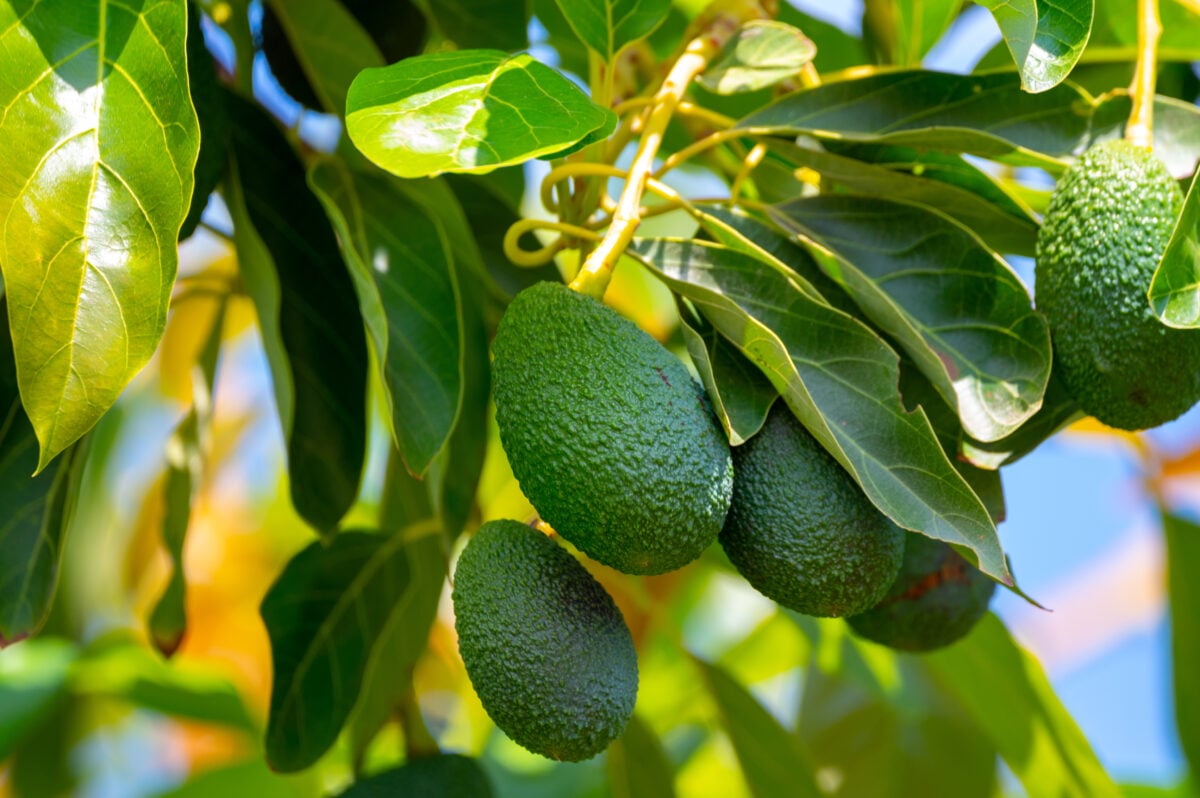
Insect numbers are in decline globally, with many native pollinating bees suffering due to pesticide use, lack of habitat and food sources, and disease. Migratory beekeeping exists to compensate for scarcities of native bees and other pollinating insects to pollinate commercially grown crops. It involves loading hives onto trucks and transporting them to specific sites to pollinate the crops there.
It’s thought that frequently traveling and being confined to trucks for hours, or sometimes days, at a time can cause the bees stress. The farms where they forage will mostly only grow one type of crop, reducing the diversity of their diets. While moving between foraging sites, they will be fed on sugar water. They will also mingle with lots of bees from other migratory colonies, risking the spread of disease.
Toksvig is correct that migratory beekeeping is not natural for the bees. She is also right that it is used to produce avocados, almonds, and many other crops such as broccoli, cherries, and cucumbers.
Many countries have migratory beekeeping, but it is a particularly widespread practice in the US. According to Scientific America, California’s almond orchards are one of the main stops for more than 1,500 beekeepers and 31 billion honeybees each year. There aren’t enough native pollinators to cover all the 90 million almond trees. California also grows most of the avocados in the US.
But so many other crops in the US also depend on the migratory bees that, without them, the country would not be able to produce a third of all its crops.
Moreover, it isn’t just plant foods consumed directly by humans that depend on migratory bees. So do some animal feed crops like alfalfa, which is used to feed beef and dairy cattle and is the main cause of water shortages in the California River Basin.
Are avocados vegan?
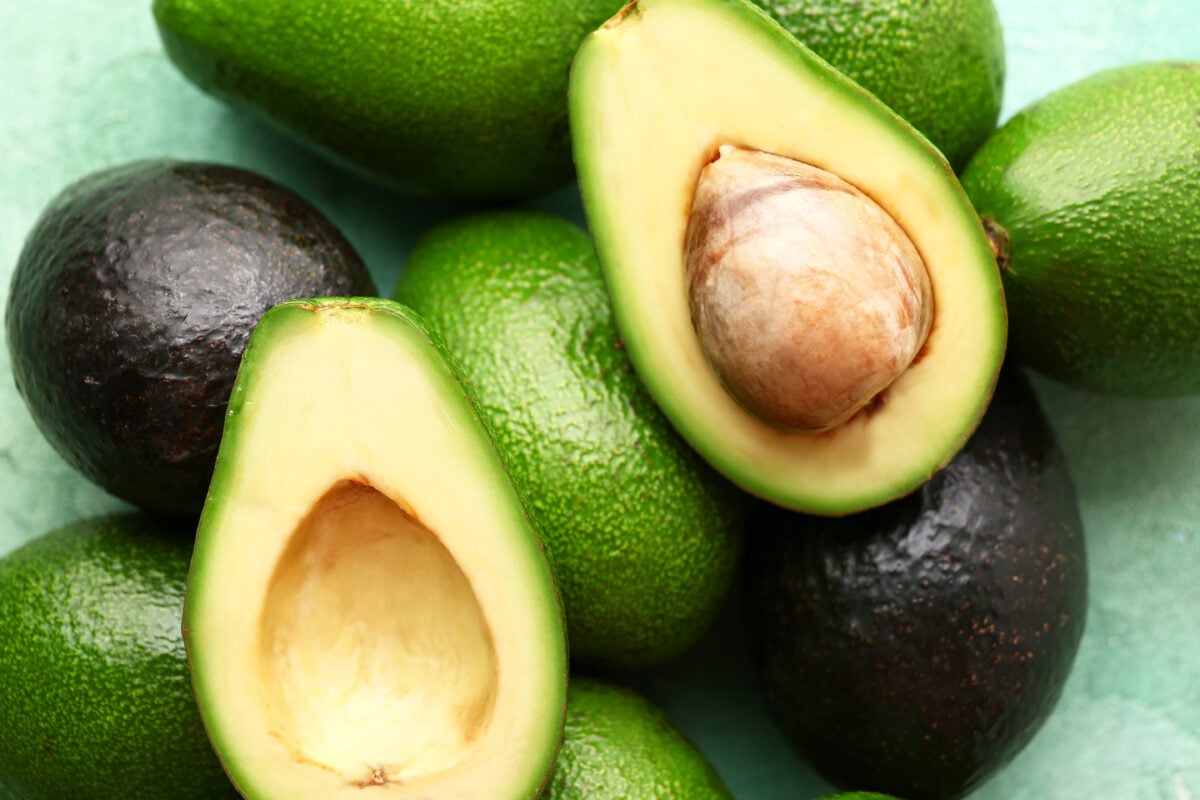
It’s true that migratory beekeeping complicates matters for vegans. But there is no doubt that avocados are still fine for vegans to eat, and there are a number of reasons why.
Following a vegan lifestyle doesn’t necessitate avoiding all direct and indirect animal exploitation at all times. In the world we live in now, this would be near impossible. As outlined by The Vegan Society, the definition of veganism is as follows: “Veganism is a philosophy and way of living which seeks to exclude – as far as is possible and practicable – all forms of exploitation of, and cruelty to, animals for food, clothing or any other purpose; and by extension, promotes the development and use of animal-free alternatives for the benefit of animals, humans and the environment. In dietary terms it denotes the practice of dispensing with all products derived wholly or partly from animals.”
Vegans, particularly those in the US, who wanted to completely avoid the use of migratory bees would not only have to give up avocados, but many other foods as well. This would quickly become impractical. In living our lives, it isn’t possible to avoid all indirect harm to animals. Veganism is about excluding this harm and the exploitation of animals as much as is practical and possible, as stated in the definition.
As PETA previously put it: “Average shoppers can’t avoid produce that involves migratory beekeeping, any more than they can avoid driving on asphalt.” While it is possible to buy vegetables that aren’t grown using migratory beekeeping, this will not always be possible for most people.
In addition, many other plant foods are grown using animal manure as fertilizer – and demand for it is growing in the US as costs of synthetic fertilizer rise. Vegan organic (“veganic”) farms do exist but they are currently few in number, meaning that vegans will also be likely consuming some vegetables grown using the waste of farmed animals.
Again, this doesn’t make the foods not vegan; it simply reveals how ubiquitous and embedded animal exploitation is in our food system.
Is my avocado toast killing bees?
Avocado production is linked to bee death, but so is the production of many other foods.
Pesticides are a leading cause of declining insect numbers, including wild pollinators. They also kill the migratory bees used to pollinate avocado trees, almond trees, and other crops. In California, even if almond growers are limiting chemical use and trying to protect bees, the distances they travel mean they can still encounter pesticides used on adjacent farms growing different crops.
Pesticides used in avocado production in South America may also be causing bee deaths there. Fipronil, an insecticide which is banned in Europe and restricted in the US and China, may be to blame.
While pesticides are a serious problem, their use is far from unique to avocados. In fact, the rising demand for animal feed crops is a major driver behind the increased use in pesticides globally. But Piers Morgan has so far not commented on the bee deaths linked to meat and dairy production.
Habitat destruction is another leading cause of the dwindling numbers of insects that is making farmers more dependent on migratory bees for crop pollination. And what is the main driver of that destruction globally? Animal farming.
So the exploitation of bees and any associated bee deaths are deeply embedded in the omnivore’s diet. That is in addition to it being directly responsible for the deaths of billions of animals killed for food each year.
What does this mean for vegans?
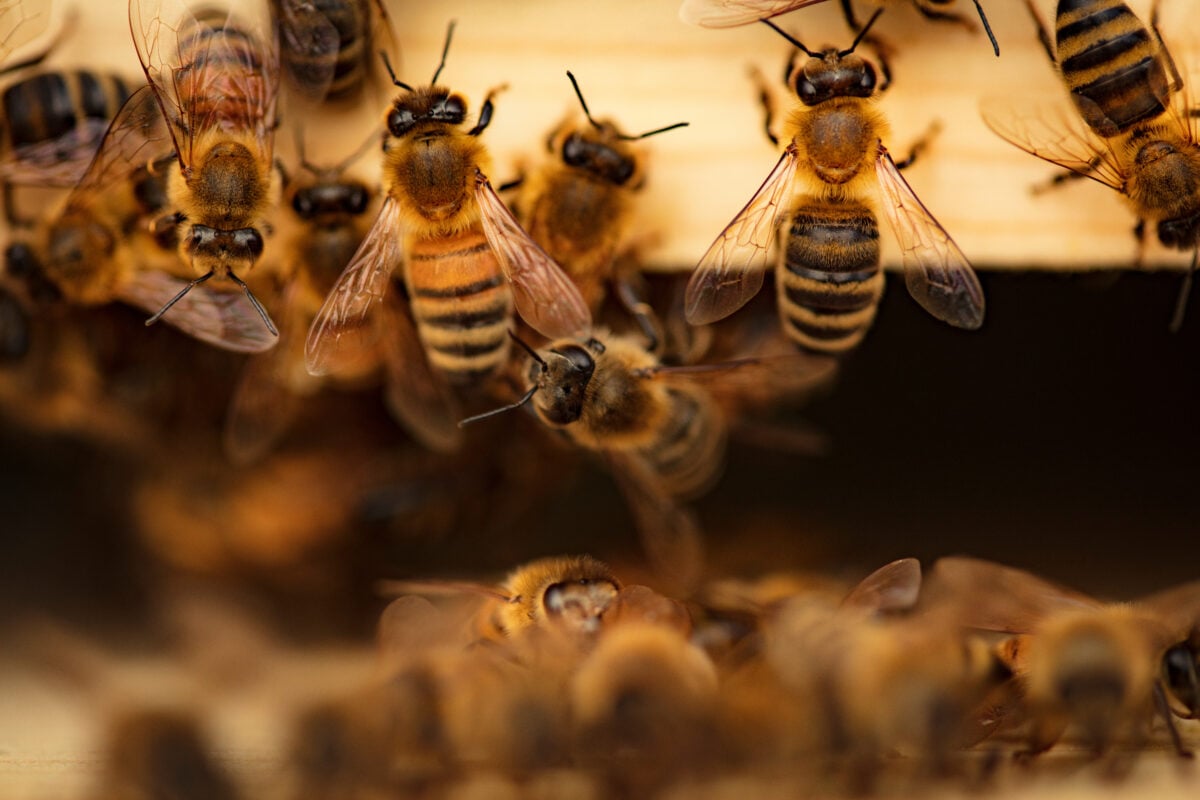
Crops pollinated by commercially kept bees are not the only choice for vegans. More sustainable farming practices can encourage a diversity of native pollinators and lower dependence on commercially kept bees. For example, in Mexico and Cuba, there is higher abundance of wild pollinators compared to some other countries, and evidence that they play a more important role in pollinating avocados.
Vegans can further minimize their impact on animals by buying, as much as is practical, fruits and vegetables grown on farms using more sustainable, wildlife-friendly practices.
And while Morgan also decries the food miles that he seems to believe are solely the fault of foods imported for vegans to eat, studies show that he is wrong on that score too. Where your food comes from is far less important that what you eat from an environmental perspective. The most local beef is still worse for the planet than most plant foods imported from abroad.
In all, much of the world’s supply of avocados might come at a cost to bees that some vegans will find unacceptable. But given that the problems with growing avocados are found across large swathes of the food system, vegans singling out avocados to ditch might not make any difference to that harm being caused to bees, whether commercial or wild.
Bad faith argument
As Gellatley and others have pointed out, people like Morgan try to “catch out” vegans with the argument of indirect harm by what plants they eat. But consuming animal products causes direct harm to billions of animals a year, forcing the majority of them into intensive confinement on factory farms.
In addition, meat-eaters are also responsible for any harm they say is caused to bees by eating avocados and other foods such as almonds. Vegans make up a tiny – but growing – proportion of the population in countries like the UK and US. Blaming vegans for killing bees so they can enjoy avocado on toast makes no mathematical sense. In other words, the argument is made in bad faith.
